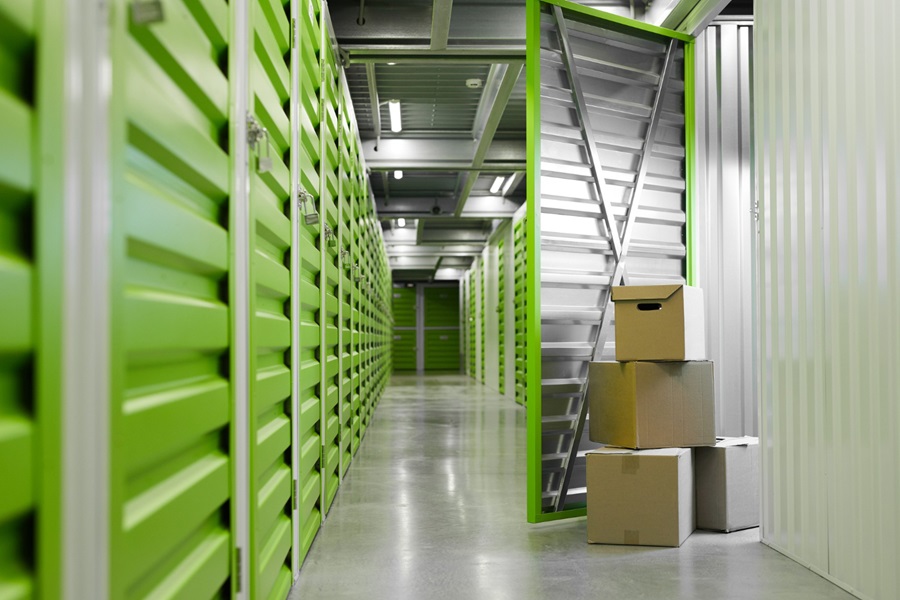The environmental benefits of using storage units for seasonal items
Storage units not only enhance daily life and reduce stress, they also fosters a sustainable, organized approach to managing belongings
STORAGE UNITS ARE a popular solution for those striving to manage belongings effectively. They offer convenient storage for items like furniture, seasonal decorations, and sports equipment that aren’t regularly used. Whether you need a small locker for keepsakes or a large unit to handle household overflow, these facilities present an adaptable option over cluttered basements, garages, or closets.
Many households wrangle with the task of storing time-specific belongings like holiday decorations, winter coats, or summer sports gear. Without adequate space management strategies, such prized possessions consume precious living square footage and precipitate cluttered homes along with undue stress.
In this context, storage units offer homeowners a dedicated space for their possessions, allowing the reclamation of living areas and the preservation of seasonal items in good condition. This strategy not only enhances daily life but also fosters a sustainable, organized approach to managing belongings.

Environmental Benefits of Using Storage Units
Optimizing Space at Home and Reducing Consumption
Optimizing living space by using storage units curtails the compulsion to over-purchase storage solutions. Cluttered homes, brimming with seasonal items, commonly drive residents toward acquiring extra storage furniture or containers. This perpetuates a cycle of consumption that drains wallets and inflicts environmental damage through item production and transport. Homeowners, by utilizing a storage unit, effectively declutter their spaces without resorting to unnecessary purchases. This shift simplifies home organization and aligns with sustainable living practices.
Storage units also promote the reuse of items, offering a secure space for their preservation, thereby ensuring future use. If stored systematically and accessibly, these possessions escape early replacement or disregard. Take holiday decorations as an example. Rather than purchasing new ones annually, families can readily reclaim and repurpose them from storage. Reducing waste and fostering a culture of sustainability, this practice shifts the focus from constant consumption to mindful resource utilization.
Preserving Items Through Controlled Environments
Storage units offer controlled environments, protecting possessions from damage, preventing waste, and decreasing replacement frequency. Belongings like winter coats, ski equipment, or fragile holiday ornaments are vulnerable to wear when poorly stored at home. Without proper protection, the perils of fluctuating temperatures, humidity changes and pest infiltration could cause irrevocable harm making these items unusable.
Individuals can guarantee their possessions’ excellent condition and notably extend their lifespan by storing them in a climate-controlled unit. This approach not only saves money but also diminishes the environmental impact stemming from the production of replacements.
Proper storage preserves items, thereby reducing waste. When conditions are suboptimal, personal belongings frequently end up as landfill additions, exacerbating the pressing issue of waste management. Utilizing a storage unit with controlled conditions avoids these issues, allowing items to remain functional and in circulation for years.
Reduction in Home Renovations or Add-Ons
Storage units reduce the need for environmentally costly home expansions. When homes overflow with seasonal items, homeowners might build extra closets, attics, or rooms—projects demanding substantial amounts of wood, concrete and steel. Individuals can meet their storage needs by choosing a storage unit. This choice avoids contributing to natural resource depletion and reduces the carbon emissions associated with construction.
Storage units minimize the need for building materials and reduce energy consumption associated with home expansions. New additions, demanding heating, cooling, and lighting, increase a household’s energy usage significantly which escalates utility bills and contributes to greater greenhouse gas emissions. Homeowners can circumvent energy demands by storing seasonal items off-site, rendering storage units a more eco-friendly option. The centralized design of these facilities often enables optimized energy consumption, especially in contemporary units crafted with sustainability as a focal point.

Tips for Eco-Friendly Use of Storage Units
Store Responsibly
Begin your foray into eco-friendly storage by decluttering. Actively evaluate your possessions and discard those that serve no purpose. Consider donating, recycling, or repurposing them to avoid contributing to landfill waste. Decluttering minimizes waste and maximizes storage space efficiency. This streamlined approach can reduce the need for larger units, thereby lowering your carbon footprint. Although cleaning and decluttering might appear burdensome, taking small steps can make the process much more manageable. In fact, 80% of Canadians agree that completing a cleaning task is somewhat easier if you start small.
Choose Sustainable Storage Providers
Seek out storage companies that emphasize eco-friendly strategies like employing energy-efficient lighting, establishing recycling programs, or harnessing solar power for their operations. Selecting a sustainable provider significantly bolsters your eco-conscious storage practices. Numerous contemporary providers now adopt green initiatives like implementing insulated units to diminish the reliance on extensive heating and cooling, ultimately curbing energy use.
Rotate Items Seasonally to Prevent Waste
Rotating your stored items seasonally constitutes an excellent strategy that prevents waste and ensures the longevity of your belongings. Regularly accessing and rotating these items allows you to inspect them for wear or damage and address such issues promptly, thereby extending their lifespan. This proactive approach not only reduces replacement needs but also minimizes the environmental costs tied to manufacturing and shipping new goods.
Bottom Line
Navigating modern living’s challenges necessitates eco-conscious choices, particularly in seasonal storage. Storage units present an opportunity to combine convenience with environmental stewardship. Think of storage units as more than mere repositories for items; view them as instrumental in forging a sustainable future—a future where today’s mindful choices foster an enduringly healthier planet.

